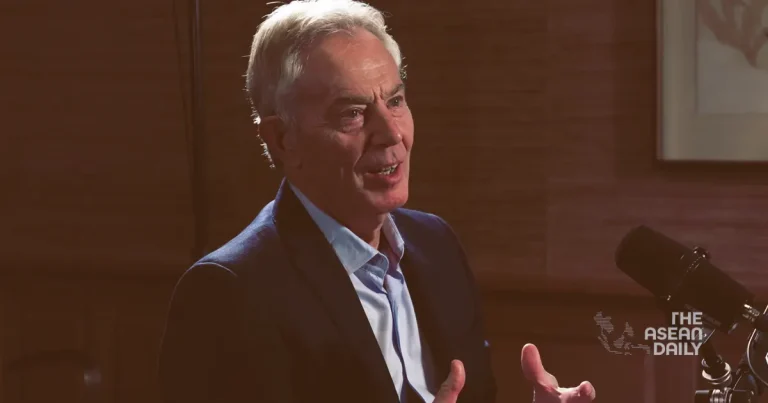29-6-2024 (LONDON) In a recent interview with podcaster Dwarkesh Patel, former British Prime Minister Tony Blair highlighted three pivotal decisions made by Singapore’s founding father, Lee Kuan Yew, that contributed to the nation’s remarkable success. Blair, who now runs the Tony Blair Institute for Global Change, an organization that advises national leaders on strategy, policy, and delivery, shared his admiration for Lee’s foresight and leadership.
When asked by Patel what advice he might have given to Lee Kuan Yew in the 1960s when Singapore gained independence, Blair humbly acknowledged that the question had it backwards. “I learned so much from Lee Kuan Yew,” he said, recounting his initial meeting with Lee in the 1990s when he was the leader of the UK’s Labour Party.
“The first thing he said when I came into the room was, ‘Why are you seeing me? Your party has always hated me,'” Blair recalled. His response was simple: “I watched what you do in government, and I want to learn from it.”
Blair shared that he had learned that politics and government were different professional disciplines, and that it was possible to learn lessons from what had worked and what hadn’t.
Blair then highlighted three decisions made by Lee at the beginning of Singapore’s independence that, while deeply contested at the time, have proven to be pivotal to the nation’s success.
Speaking English
Lee made the bold decision to make English Singapore’s language, despite objections from those who believed the newly independent state should have its own local language. Lee, however, recognized English as the “language of the world.”
Bringing Intellectual Capital
Lee decided to bring the best intellectual and management talent, subject matter experts, and practitioners to Singapore, regardless of where in the world they were from. This decision faced pushback from critics who argued that Singapore should stand on its “own two feet” and not rely on foreign expertise, including former colonial powers like Britain.
Zero Tolerance for Corruption
Blair praised Lee’s strong stance against corruption and his innovative approach to ensuring high standards in public office. He specifically referenced Lee’s insistence on paying political leaders well, making them some of the best-paid in the world by a “factor of about 10.”
When asked if Western countries like the United States or the UK would have the power to implement similar policies or if they would be stymied by bureaucratic inertia, Blair expressed optimism. He suggested that there were many opportunities to utilize technologies, particularly artificial intelligence, to improve productivity in both the public and private sectors.
Blair described the advent of AI as an “exciting time to be in politics” due to the challenge of coming to terms with this new technology and its potential for transformative change.
Addressing a question about whether institutes like his might limit the emergence of “new Singapores” by restricting policy experimentation, Blair emphasized that his institute did not attempt to be prescriptive in its advice. Instead, they focused on principles that were true for all governments, developed or developing, such as prioritization, effective policy-making, finding the right personnel, and managing implementation.
Throughout the interview, Blair dismissed “deep state” conspiracy theories, suggesting that simple inertia was a far better explanation for why change in government often takes such a long time. He emphasized that overcoming this inertia and embracing transformative policies, like those implemented by Lee Kuan Yew, is crucial for nations seeking to achieve similar levels of success.




